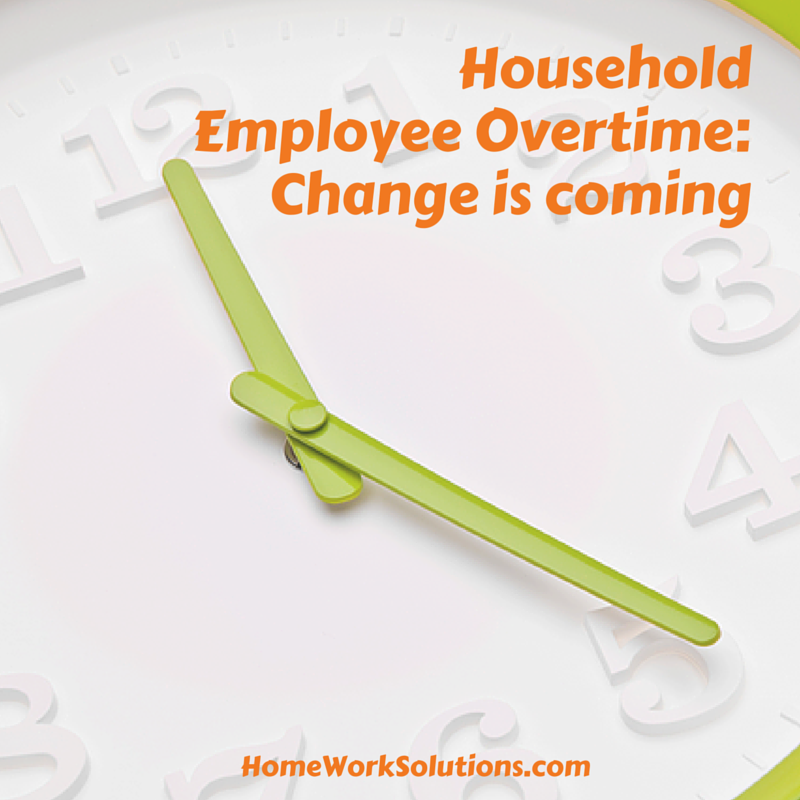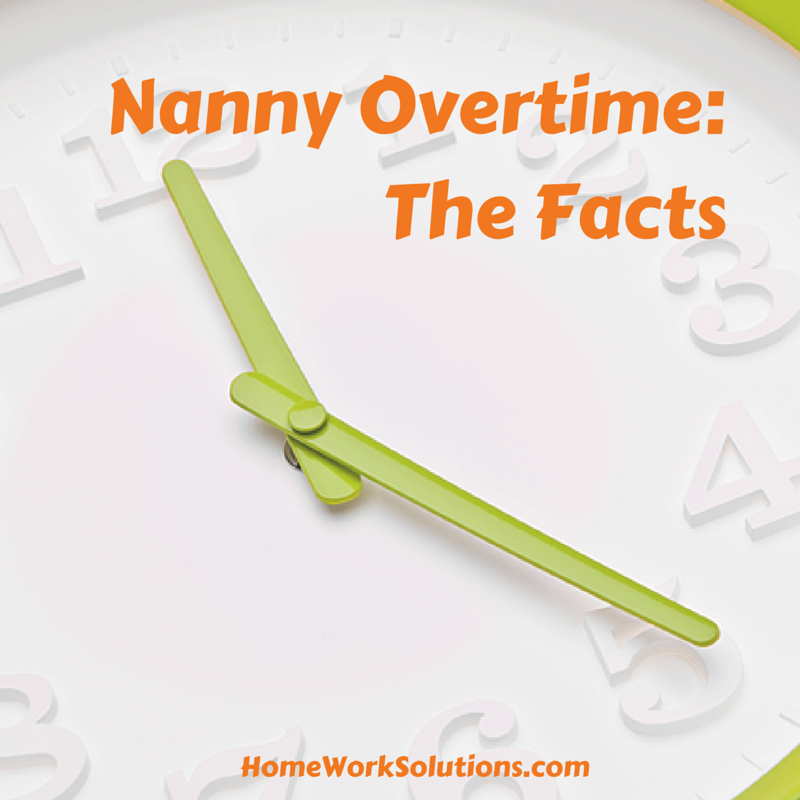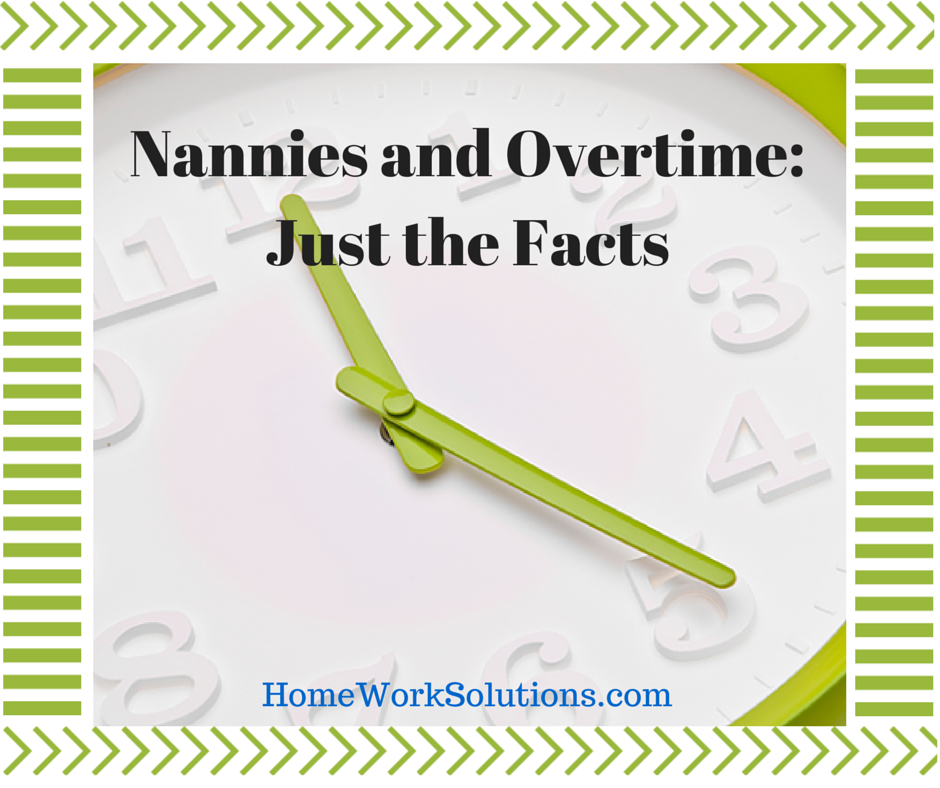A new federal tax law passed this summer, and it includes a provision that could include tax savings for household employees—but only if you know the detail. The One Big Beautiful Bill Act (OBBBA) includes a “No Tax on Overtime” rule, and although it doesn't directly change household payroll practices, it does impact tax reporting and employee tax credits.
Read More
Topics:
nanny,
nanny overtime,
agency,
senior,
CPA,
live-in household employee overtime,
no tax on overtime rule,
FLSA overtime deduction,
no tax on tips,
household employee overtime,
OBBBA tax bill,
One Big Beautiful Bill Act,
household employer tax 2025,
nanny payroll tax update,
IRS overtime tax deduction
Good communication that establishes a mutual understanding is necessary when hiring a nanny, senior caregiver, or other household employee to work in your home. When it comes to defining benefits such as paid holidays, the details matter to ensure there is no misunderstanding about how these holidays will be compensated. If the employee often works more than 40 hours per week, defining this benefit and clarifying expectations becomes even more critical. Let’s examine how labor laws determine when overtime is due and how guaranteed pay alters the picture.
Read More
Topics:
overtime rules,
household employee,
household employer,
hiring a nanny,
time tracking,
nanny hourly wage,
domestic employer legal responsibilities,
nanny overtime,
Hiring Elder care,
Senior Caregiver Payroll
The short answer is yes. Domestic employees, such as nannies, household assistants, and elder care providers are hourly employees under the law, and therefore must be paid overtime. The Fair Labor Standards Act (FLSA) provides the framework to determine weekly overtime requirements for household workers. Some states also have laws requiring daily overtime. It is important to understand all applicable rules to determine when overtime pay is due.
Read More
Topics:
eldercare,
caregiver payroll,
nanny agency,
senior care,
nanny employment practices,
nanny,
nanny tax,
nanny overtime,
household payroll,
Senior Caregiver Payroll,
agency,
senior,
CPA
Are you considering hiring a nanny? Maybe a senior caregiver for one of your aging parents? Finding and hiring an experienced household employee helps provide the extra hand you need. But don’t forget, you’ll need to factor in the cost of hiring someone to work in your home. Paying them ‘under the table’ is illegal. Here are some essential things to remember when paying your employee fair and legally.
Read More
Topics:
nanny unemployment insurance,
hiring a nanny,
nanny overtime,
nanny paid time off,
nanny mileage reimbursement,
nanny tax compliance,
caregiver,
nanny vacation,
agency
We get many questions surrounding overtime for domestic employees. Most of the time, household employees work 40 hours a week or less. However, when your employee works extra hours, you will need to be prepared to pay for overtime. Not sure how to accurately calculate the overtime for these longer shifts? We can help.
It might seem easier to agree to pay your employee a weekly salary to avoid overtime. Some might try to average bi-weekly payments to help make up for uneven work schedules. This could cause problems in a wage dispute because it goes against Fair Labor Standards Act (FLSA) overtime rules.
Read More
Topics:
overtime rules,
nanny payroll tax,
nanny overtime,
nanny tax calculator
A HWS referral partner who operates a nanny referral agency recently contacted our office with the following question:
Read More
Topics:
nanny payroll,
nanny hourly wage,
nanny overtime
When you’ve found a household employee that you and your family loves and trusts, it’s a wonderful feeling. Soon, you can start relying on this person to take care of things in your absence. But, if this means that you start asking for them to work more hours during the week or on the weekends, you should know the facts about overtime versus banking hours.
Read More
Topics:
overtime rules,
nanny overtime
Household employee overtime rules are commonly misunderstood, and often just plain ignored. The vast majority of household employees - nannies, senior caregivers, housekeepers, etc. - are classified as non-exempt (NOT exempt from overtime rules) employees. These household employees must be paid overtime. At the Federal level the rate of overtime pay is determined by whether the household employee lives with the employer or maintains their own separate residence. Live-in domestics are paid for their overtime hours at their regular hourly rate; live-out domestics are paid at 1.5 times their hourly rate for hours over 40 in the 7 day work week. Note MANY states extend the overtime differential of 1.5 times the hourly rate to live in domestics, and some states mandate daily, not weekly, overtime.
However some more skilled household employees - estate managers, head housekeeper or house managers for example - may be considered exempt or hourly employees. This classification is largely depended on the actual work performed and not on the employee's title. This is where the change is coming!
Read More
Topics:
overtime rules,
nanny overtime
When you have found a nanny that you trust and that your kids love being around, it’s a great feeling. Finding the right fit for your family can be tough at first, but once you’re over that hurdle, you can begin to rely on your nanny taking good care of your family while you’re away. If this means that you ask her to occasionally work more hours during the week or on the weekends, you should know the facts about paying your nanny overtime. Here are some basic 'must-know' facts about nanny overtime.
Special Update May 18, 2016: Effective December 1, 2016, ANY employee in the US, exclusive of live-in domestics, who earns less than $913 for a 40 hour week ($22.83/hour) MUST be paid hourly and MUST be paid overtime at the rate of 1.5 times the regular hourly wage for hours over 40 in a 7 day work week.
Read More
Topics:
nanny overtime
There’s all kinds of advice floating around out there about how to handle a nanny’s wages. Here, we’ve included only the facts on nannies and overtime:
Read More
Topics:
nanny hourly wage,
nanny non-exempt employee,
nanny overtime,
nanny work agreement,
nanny contract










.png)